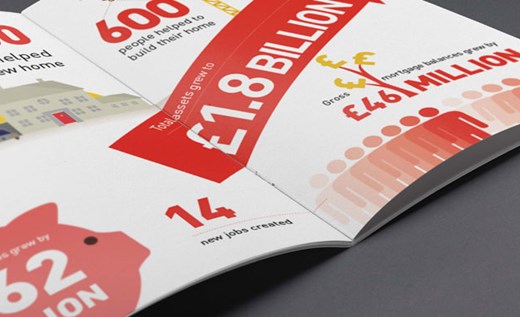
Savings Jargon Buster
When it comes to saving, we all want our money to be in a safe place where we can watch it grow. We understand that financial jargon can be confusing, so we have explained some of the most frequently used savings terms to help you make the best decision when it comes to saving your hard-earned cash.
|
Account balance |
This is the amount of money in your account. |
|
Additional Permitted Subscription (APS) |
An additional ISA allowance that is available to the surviving spouse or civil partner of a deceased ISA holder. This is available on top of your normal annual ISA allowance. |
|
AER |
AER means Annual Equivalent Rate and illustrates what the interest rate would be if interest was paid and compounded once each year. This enables you to compare more easily the return you can expect from your savings account. |
|
BACS |
This stands for Bankers Automated Clearing System, which is used to send money payments electronically between banks. |
|
Beneficiary |
The person who owns and benefits from the funds held in a savings account. |
|
Bonds |
A bond is a savings account which will earn a fixed or variable rate of interest over a set period of time. Bond terms can vary, usually between 1 to 5 years and the longer the term the higher the rate of interest tends to be. These accounts are suitable if you do not need access to your savings and can invest a lump sum of money for a fixed period of time. |
|
Care & Protection Order |
A legal document from the High Court in Northern Ireland appointing a Controller to manage an individual’s financial affairs if they become mentally incapable. |
|
CHAPS |
This stands for Clearing House Automated Payment System, an electronic transfer system, which allows you to make deposits into your savings account with same day clearance. CHAPS is a chargeable service so please refer to our Tariff of Charges for further information. |
|
Controller |
The name given to a person appointed by the High Court in Northern Ireland to manage an individual’s financial affairs if they become mentally incapable. |
|
Customer identification |
We are required to confirm the identity of all customers who open a new Savings Account. To prove your identity documents such as a passport or driving licence may be required. |
|
Dormant account |
A dormant account is one that has had no transactions made on it for at least 15 years. |
|
Faster Payments Service |
An electronic transfer service which allows you to make money transfers into your savings account from accounts held elsewhere by the next business day. |
|
Financial Conduct Authority (FCA) |
This is one of two regulators responsible for regulating financial services in the UK. |
|
Financial Ombudsman Service (FOS) |
The official independent complaints service, which works to resolve complaints between consumers and businesses that provide financial services. If we cannot resolve the complaint to your satisfaction you have the right to refer your complaint to the Financial Ombudsman Service. |
|
Financial Services Compensation Scheme (FSCS) |
The Financial Services Compensation Scheme can pay compensation to depositors if a financial institution is unable to meet its financial obligations. Most depositors are covered by the scheme. At Progressive we are covered by the Financial Services Compensation Scheme. |
|
Fixed rate |
An interest rate that stays the same for a set period of time. |
|
Flexible ISA |
A flexible ISA allows you to withdraw and reinvest your money without affecting your ISA allowance if done within the same tax year. |
|
Help to Buy: ISA |
A savings account designed for those who are saving for their first home. You can pay in up to £200 per month and the government will add a bonus of 25% when you buy a house, provided your closing balance is between £1,600 and £12,000. The bonus is capped at £3,000. |
|
Gross interest |
Interest paid on a savings account before the deduction of income tax. |
|
HM Revenue & Customs (HMRC) |
HM Revenue & Customs (HMRC) is a government department which is responsible for the collection of taxes, the payment of some forms of state support and the administration of other regulatory regimes including the National Minimum Wage. |
|
Income tax |
This is a tax which is payable on any income you earn. |
|
Instant access |
Instant access accounts are an option if you want to save but also have quick access to your money when needed. These accounts are suitable if you want easy access to your funds with a variable interest rate that is paid annually. |
|
Interest |
This is what Banks and Building Societies pay you if you keep your money with them. Interest rates can go up and down, or they can be fixed. |
|
Interest rate |
The percentage figure used to calculate how much interest you earn on your account balance. |
|
ISA |
ISA stands for Individual savings account. ISAs are tax-free savings accounts, which means you don’t pay tax on your interest. There are four different types of ISA: Cash ISA which is available to people aged 16 or over, Stocks and Shares and Innovative Finance ISAs, available to those aged 18 and over and Lifetime ISAs, available to people aged between 18-40. Progressive offers five Cash ISAs – the Cash ISA, Cash ISA Saver, Clockwork Regular ISA Saver, Help to Buy: ISA and ISA Bonds. |
|
ISA allowance |
Each tax year, every UK resident aged 16 and over gets an annual tax-free allowance, this amount can vary. The tax year runs from 6 April to 5 April the following year. |
|
Junior ISA |
Junior ISAs were introduced on 1 November 2011 as a replacement to Child Trust Funds (CTFs). A child can open their own account from age 16, alternatively a parent or someone with parental responsibility can open the account on behalf of an eligible child They are available to children who are under the age of 18 and do not have a Child Trust Fund. |
|
Limited issue |
Some savings products, such as Fixed Rate Bonds, are limited issues and therefore will only be available for a short period of time. This means that they can be withdrawn from market without notice. |
|
Maturity date |
The date when money placed in a fixed term account reaches the end of its term. |
|
Minimum lodgement |
This is the least amount of money you can deposit into a savings account. |
|
Monthly interest |
Where interest is paid on a monthly basis, rather than an annual basis. |
|
Nominee |
A person operating a savings account on behalf of another person (the beneficiary) i.e. a parent holding an account on behalf of a child. |
|
Passbook |
You may be issued with a passbook when you open a new savings account. It helps you keep a record of your account balance and it must be produced when you make a withdrawal. |
|
Personal Savings Allowance |
This is the amount of interest you can earn on your savings without paying tax. Your allowance depends on whether you're a basic, higher or additional-rate tax payer. Interest from ISAs doesn't count towards this allowance. |
|
Power of Attorney |
A written legal document that gives an individual the authority to act for another person. |
|
Prudential Regulation Authority (PRA) |
This is one of two regulators responsible for regulating financial services in the UK |
|
Regular savings accounts |
Regular savings accounts encourage you to save on a frequent basis, but there may be limited access to the funds. These accounts are suitable for savers who wish to get into a savings habit by investing a fixed amount each month. |
|
Rules |
The Society’s rules which regulate the relationship between us and you, our savers and borrowers. All borrowers receive a copy of the rules and are available to savers on request. |
|
Share account |
An account which will qualify you for membership of the Society. |
|
Statement |
A statement of interest is issued to you annually and shows the amount of interest you have received on your savings. |
|
Summary Box |
A Summary Box is the key product information about a savings account. It is designed to provide suffice information on an account to enable a comparison with other savings products. |
|
Tax |
A charge you pay to the government – there are different types of tax but income tax and inheritance tax are the ones most people may be aware of. |
|
Tax-free |
Tax-free means the interest paid is exempt from income tax. |
|
Tax year |
A tax year runs from 6th April one year until 5th April the following year. |
|
Term |
The term is the period of time your savings runs for. |
|
Trustee |
A Trustee is someone who is appointed to hold the funds in the account for the benefit of the beneficiary. There will be a Trust document naming the Trustee. |
|
Tiered interest rates |
The interest rate calculated depends on how much you have in your account. |
|
Variable rate |
Variable rate savings accounts mean the interest rate can go up or down. |

Speak to our team today
We’d love to talk you through the mortgage process and help you find a suitable product. For more information or to apply for an account, you can call us, email us, pop into one of our 11 branches. We look forward to hearing from you.



